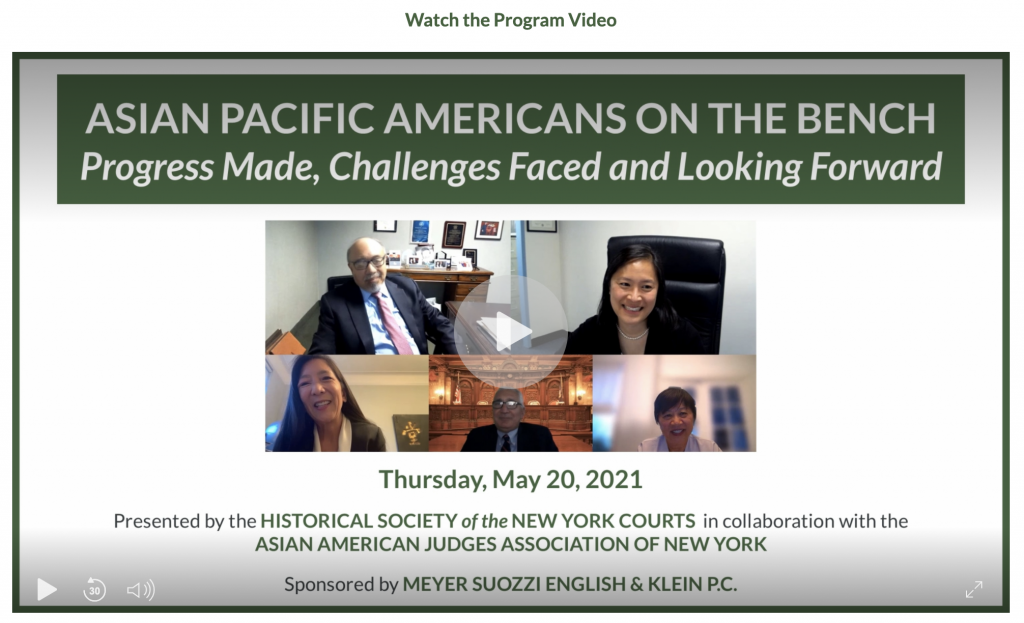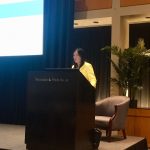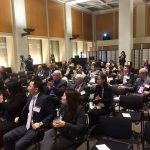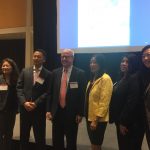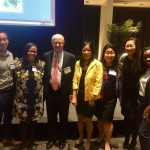WASHINGTON – The Asian Pacific American Bar Association of Indiana (APABA-IN), joined by the National Asian Pacific American Bar Association (NAPABA), strongly condemns the anti-Asian remarks by Purdue University Northwest (PNW) Chancellor Thomas L. Keon at the University’s commencement ceremony. APABA-IN and NAPABA requested a meeting with Purdue University leadership, including the President and Board of Trustees, to discuss investments to support for Asian American and other diverse students.
“Our membership, many of whom are proud and loyal Purdue alumni, are deeply disappointed by Chancellor Keon’s insensitive anti-Asian taunt,” said Judge G. Michael Witte, president of APABA-IN. “Chancellor Keon transformed what should have been a triumphant event celebrating the academic achievements of Purdue Northwest students into a national embarrassment. His comments highlight the continuing stereotypes that harm and hamper Asian American, immigrant, and diverse students throughout their education.”
Judge Witte continued, “While we acknowledge his apology, as noted in our letter to President Mung Chiang, we call on the University and the entire Purdue University system to make serious investments in creating a more inclusive environment – reflected in its curriculum, people, and services – that support their students and communities throughout Indiana. As AAPI lawyers who live and work across the Hoosier State, we are ready to work with Purdue to create a more supportive environment for all students in the state that recognizes the experiences and needs of our AAPI communities.”
“NAPABA joins the Asian Pacific American Bar Association of Indiana and strongly condemns Chancellor Keon’s mockery of Asians, Asian Americans, and those who speak other languages,” said Sandra Leung, NAPABA President. “As our research shows, stereotypes perpetrated by Chancellor Keon have pernicious and long-lasting impacts on AAPI lawyers throughout their careers, creating additional barriers and obstacles for them to overcome. We recognize that this event does not occur in isolation. It is part of a history of othering Asian American communities and a moment when acts of hate and discrimination are at unprecedented levels. We call on the University President and Board of Trustees to take additional steps to hold Chancellor Keon accountable and stand side-by-side with our members in the Hoosier State’s demand for and offer to support a serious investment by the Purdue University system in diversity, equity, and inclusion.”
According to NAPABA’s recently released “Portrait of Asian Americans in the Law 2.0,” over 40% of AAPI lawyers surveyed reported overt discrimination and nearly two thirds have felt implicit discrimination in the workplace because of their race and ethnicity – including respondents who cited to teasing and ridicule of the kind displayed by Chancellor Keon.
#
The Asian Pacific American Bar Association of Indiana (APABA-IN) is a voluntary bar association dedicated to the needs, concerns, and interests of the Asian Pacific American legal community in Indiana.
The National Asian Pacific American Bar Association (NAPABA), represents the interests of over 60,000 Asian Pacific American (APA) legal professionals and nearly 90 national, state, and local APA bar associations. NAPABA is a leader in addressing civil rights issues confronting APA communities. Through its national network, NAPABA provides a strong voice for increased diversity of the federal and state judiciaries, advocates for equal opportunity in the workplace, works to eliminate hate crimes and anti-immigrant sentiment, and promotes the professional development of people of all backgrounds in the legal profession.


